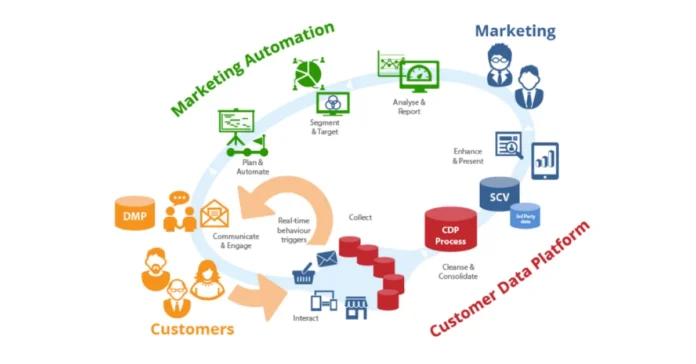1. The Uneven Playing Field
Small firms undergo tough trials competing against behemoths in their fields. The way these “tough trials” work is as follows: These challenges come with a large budget, a large team, and vast resources. You wouldn’t even call it a fair fight. In almost every aspect, the so-called mom-and-pop operations are disadvantaged.
Teams based in other countries can help. By making use of talented workers in far-off but inexpensive locales like the Philippines, small firms can hold their own against the much larger corporations that so dominate their markets. This article outlines five strategies that these firms can employ to compete effectively with larger corporations by 2025.
This Matters: With the correct method, small businesses can flourish and compete with major brands. This guide details five strategies that have been banked on and that work. They are practical, verifiable, and lead to an outcome we want to see more of: small businesses scaling up efficiently using teams offshore. If you know an entrepreneur who’s in this space and could benefit from this, share this with them.
2. The Power of Offshore Teams
An offshore team can either function in tandem with an American team or under the American team when the latter is not available. People from the above-stated countries carry out the same tasks that those in the headquarters perform. The wage difference next allows the company to save a considerable sum of money without sacrificing quality. But the American team is only available for a short time, so the team members must work more than full-time. misconceptions, like being of poor quality and having communication problems. Well, that’s just outdated. The Philippines has a 97% literacy rate; it ranks second in Asia for English proficiency, with a score of 570 on the 2024 EF English Proficiency Index. Its workforce is not only trained but is furthermore aligned with Western business needs.
According to offshore outsourcing specialists, the key to achieving these savings without sacrificing quality is partnering with reputable BPO providers that specialize in the Filipino talent market. One such provider, Kinetic Innovative Staffing, has been connecting small businesses with top-tier remote professionals in the Philippines since 2013.
3. Advantages of Offshore Teams for Small Businesses
Small businesses that use offshore teams have a distinct competitive advantage when matched against larger, similar corporations. They gain:
- Cost savings. An offshore team lets you hire quickly and pay less than in the US or Western Europe.
- Flexibility. An offshore team can work the hours that suit you; in many cases, they will work your night hours (their day) to keep a seamless operation running.
You can rely on consistently reliable sources. If you set up a good offshore operation, you can count on those people to do what you need every day.
- Reducing Costs: Save on employee compensation and workspaces. When you outsource jobs to the Philippines, you can cut the price of labor by up to 70%. That money can then go toward giving your company a boost.
- Access to Talent: Every year, the Philippines generates 850,000 graduates from higher education. Many of them receive training in the fields of technology and business. Their skills are readily available, as opposed to other countries that have to pay a premium for them. This factor contributes to our strong value proposition.
Experts recommend working with experienced remote staffing partners who have access to pre-screened candidate databases and understand the nuances of Filipino work culture. Platforms like KineticStaff.com offer access to a curated pool of over 9 million professionals across roles such as digital marketing, accounting, IT, and customer support.
- Scaling Flexibly: Without having to make long-term commitments, you can adjust the size of your team based on demand.” This is unlike the way large corporations work, with their large, inflexible structures.
- Year-Round Operations: Use our time zone to your advantage for 24/7 productivity. Round-the-clock teams in the Philippines can reduce response times by 40%, according to a 2024 Forbes study.
To gain these benefits, investigate BPO suppliers that focus on the Philippines’ talent pool for bespoke staffing.
4. Five Ways Small Businesses Use Offshore Teams to Compete
Offshore teams are used by small businesses that want to compete with the capabilities of big brands but can’t afford their prices. Here are five strategies they use to maximize the effectiveness of those teams.
Improved Customer Assistance
Every e-commerce business can provide customer service comparable to that of much larger companies, all without incurring significant costs. A 2024 report showed that only 31.8% of U.S. businesses had multilingual staff. This is significant for an English- and Spanish-speaking country. In the same report, 19% of respondents said they offered customer service in a language other than English; 9% offered it in a language other than English or Spanish.
Affordable Promotion
Marketing demands many resources, but offshore teams make it affordable. Content writers, SEO specialists, and social media managers execute campaigns that can compete with big brands. A pet supply startup hired an offshore marketing team for $2,000 a month, and website traffic increased by 180 percent in six months.
Efficient Administrative Processes
Small businesses bear the burden of administrative tasks. Virtual assistants located overseas handle the minor tasks such as entering data, sending invoices, and managing calendars, which often disrupt the core team’s workload. In a 2024 study, Upwork found that offloading those three tasks to virtual assistants saves a business, on average, 15 hours a week.
Expert Competence
Offshore teams fill specialized roles such as software development and bookkeeping, allowing in-house employees to concentrate on strategic initiatives. By 2025, the Philippines will have seen increased demand for roles in AI and data analytics to support complicated projects.
Product Launch Accelerations
Teams located offshore help to expedite the time taken to complete a project. An offshore team that a SaaS startup had was used to complete a task that resulted in the company being able to launch a prospective project well ahead of schedule. We expanded our development team and successfully slashed the schedule in half. Despite many succeeding at this level, the above company is quite successful, with a 30x revenue growth that’s well on its way in 4 years.
Case Study
A coffee shop chain based in California sought to contend with Starbucks but could not match it in resources. The owner turned to an offshore team, hiring for three key positions: a social media manager, a customer support representative, and a virtual assistant. He achieved a 150% increase in Instagram engagement, a 40% reduction in customer complaints, and annual savings of $45,000, all of which paved the way for entry into new markets. Small businesses can take heart.
5. Strategies for Successful Offshore Staffing
To optimize the performance of the offshore teams, apply these techniques:
- Establish Transparent Protocols: Make excellent operating procedures (EOPs) for jobs like customer support or data entry. For example, provide directions for handling customer inquiries to ensure anything but consistency.
- Use collaborative tools: Use platforms like Slack, Asana, or Zoom for smoother communication. Projects in small businesses that use Trello have fewer delays, according to an Inc. article that cites a 30% reduction in project delays relating to offshore teams when using that particular tool.
- Promote Team Integration: Consider offshore staff as vital team members. Communicate updates and celebrate achievements. A 2024 Gallup study reveals that an engaged remote team boosts productivity by 23%.
Choose a reliable BPO partner. Look for one that pre-screens talent and offers customized solutions, particularly those that utilize the Philippines’ skilled workforce. Make sure they are capable of providing seamless integration.
6. Addressing Common Offshore Staffing Concerns
There are ways to alleviate concerns about offshore staffing. Here’s how.
Barriers of Time Zones and Communications
Fortunately, we can speak to our Philippine team in real-time by overlapping work hours. Our mornings in the U.S. align with their evenings. We’re able to hold concise video conferences using tools like Zoom in real-time.
I once worked with a company whose primary teams were based in the U.S. and the Philippines. When it came to holding virtual meetings, the times had to be chosen carefully. It was either early morning or early evening for one group or the other. However, operations did not have to come to a halt for unit meetings. Still, the business was able to use phone conferencing, too.
Training and Quality Standards
Choose a BPO provider that screens applicants and offers training. Filipino workers are being skilled for 2025’s AI and analytics demands, making them a high-quality talent pool.
Secure Data: Collaborate with a BPO that employs encrypted systems and adheres to GDPR standards to maintain the privacy of delicate data.
Conclusion
By making strategic choices, small businesses can compete with the big brands. Offshore teams help reduce costs, give you access to wonderful global talent, and allow you to operate 24/7. This levels the competitive playing field.
Out of all the possible locations around the world, the Philippines holds quite a few advantages for small businesses competing with the big guys. Its BPO industry is projected to reach $40 billion and employ 1.9 million workers by 2025. It holds 10-15% of the global BPO market. In conclusion, the Philippines is a wonderful place from which to employ a reliable team.
Building an offshore team is not a temporary fix but a repeatable strategy for growth.
If you run a small business, whether it’s an online store, a tech startup, or a physical retail shop, you can achieve the same capabilities as the big brands that dominate your space. And by ‘big brands,’ we don’t just mean the Amazons and Walmarts of the world—many small businesses operate at a scale that allows them to compete effectively with offshore teams. Find out how to get started.
What is your strategy for competing with the big players in your industry? Share your insights below or send this article to founders you know who are trying to figure out how to scale without blowing up.



